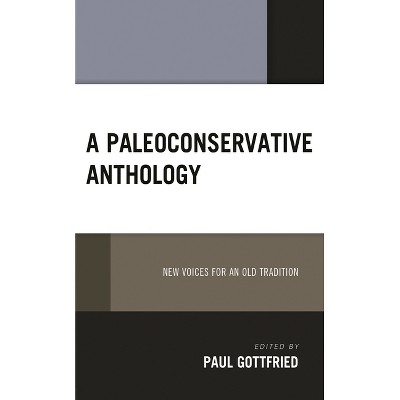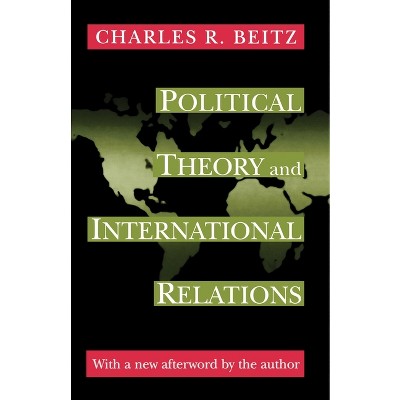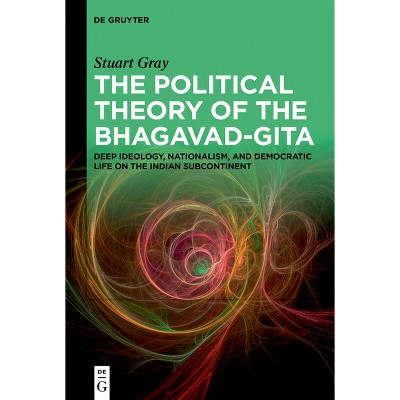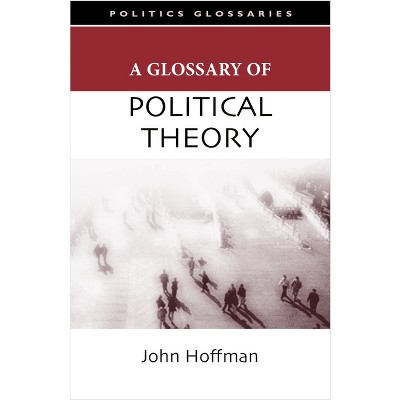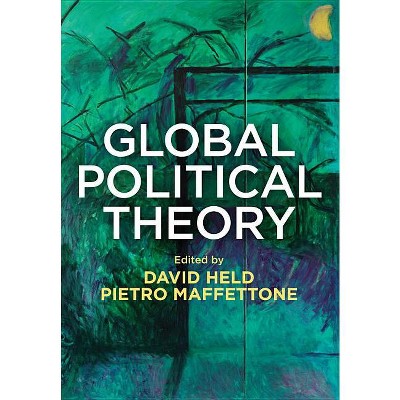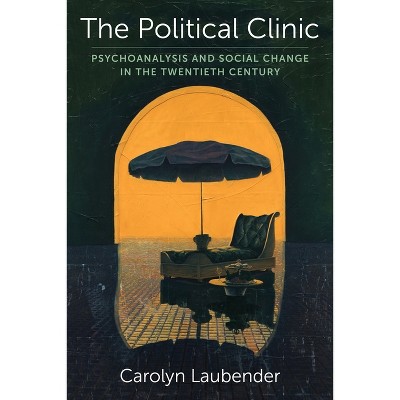Sponsored

Aristocratic Voices - (Political Theory for Today) by Richard Avramenko & Ethan Alexander-Davey (Hardcover)
In Stock
Sponsored
About this item
Highlights
- In the 21st century, political debates appear to center on fundamental conflicts between "the people" and "elites.
- About the Author: Richard Avramenko is director of the Arizona State University School of Civic and Economic Thought and Leadership.
- 420 Pages
- Political Science, History & Theory
- Series Name: Political Theory for Today
Description
About the Book
Much of classical political thought ascribed paramount importance to elite formation: what institutions and traditions would cultivate the best qualities in the ruling class, and curb their exorbitances. This volume consists of essays by political theorists who explore these questions in the works of aristocratic thinkers, both ancient and modern.Book Synopsis
In the 21st century, political debates appear to center on fundamental conflicts between "the people" and "elites." Most of these discussions emphasize strategies to protect and empower the oppressed masses against a predatory ruling class. Much of classical political thought, however, was written from an aristocratic point of view: that is, it ascribed paramount importance to the question of elite formation. Assuming inequality as a permanent feature of human associations, what virtues would elites need to have, what institutions and traditions would cultivate the best qualities in members of the ruling class, and curb their extravagances. Aristocratic Voices: Forgotten Arguments about Virtue, Authority, and Inequality consists of essays by political theorists who explore these questions in the works of aristocratic thinkers, both ancient and modern. The volume includes analyses of aristocratic virtues, interpretations of aristocratic assemblies and constitutions, both historic and contemporary, as well as critiques of liberal virtues and institutions. Essays on Plutarch, Nicholas of Cusa, Marsilius of Padua, Sir Thomas Elyot, John Henry Newman, Wilhelm Heinrich Riehl, Henry Adams, Friedrich Nietzsche, Irving Babbitt, Oswald Spengler, Julius Evola, and Robert Nisbet explore ways of preserving and adapting the valuable aspects of the aristocratic ethos to the needs of modern societies.Review Quotes
"The crisis faced by liberal democracies over the past several years shows that, not only do leaders matter, but their character matters when it comes to promoting the common good. The crisis has sharpened to the point whereby widespread doubts concerning the ability of liberal democracies to produce virtuous leaders, rather than technocrats, experts, or oligarchs. This makes it necessary to consider long neglected aristocratic voices for understanding the true meaning of "rule of the best," and how it contributes to the good regime. Richard Avramenko and Ethan Alexander-Davey have convened a council of notables to stand upon the shoulders of ancient and modern giants of political thought, and to explore this important question of our time." --John von Heyking, University of Lethbridge
"Aristocratic Voices: Forgotten Arguments about Virtue, Authority, and Inequality is a welcome antidote to the democratic excesses experienced today as manifested in political populism, mob rule, and a public rejection of expertise. In this collection of essays, we see the relevance of current and classical republican thought as articulated in the works of Aristotle, Plutarch, Nicholas of Cusa, Marsilius of Padua, Francisco Suarez, Giambattista Vico, Rousseau, Tocqueville, Mill, Henry Adams, Nietzsche, Irving Babbit, Robert Nisbet, and others. What this volume presents is the need for an engagement of aristocratic ideas to stimulate healthy discussion and debate in a democratic society, even if these elite ideas are ultimately discarded. Both timely and enduring, Aristocratic Voices: Forgotten Arguments about Virtue, Authority, and Inequality provides a pathway towards a vigorous and robust regime where both elites and the populace can rule together." --Lee Trepanier, Assumption University "The thirteen essays in this sequel to Aristocratic Souls in Democratic Times constitute detailed meditations on Aristotle's timeless observation, that human beings are equal in some respects and unequal in others. In a context provided by thinkers for whom democracy is an alternative regime not the very definition of a just one, the contributors range widely over Western political thought and philosophy, often engaging with (perhaps unjustly) neglected authors to establish the continued legitimacy of aristocratic political thinking in today's democratic and not-so-democratic world." --Barry Cooper, University of CalgaryThe crisis faced by liberal democracies over the past several years shows that, not only do leaders matter, but their character matters when it comes to promoting the common good. The crisis has sharpened to the point whereby widespread doubts concerning the ability of liberal democracies to produce virtuous leaders, rather than technocrats, experts, or oligarchs. This makes it necessary to consider long neglected aristocratic voices for understanding the true meaning of ldquo;rule of the best, rdquo; and how it contributes to the good regime. Richard Avramenko and Ethan Alexander-Davey have convened a council of notables to stand upon the shoulders of ancient and modern giants of political thought, and to explore this important question of our time.
About the Author
Richard Avramenko is director of the Arizona State University School of Civic and Economic Thought and Leadership.
Ethan Alexander-Davey is associate professor of political science at Campbell University.







